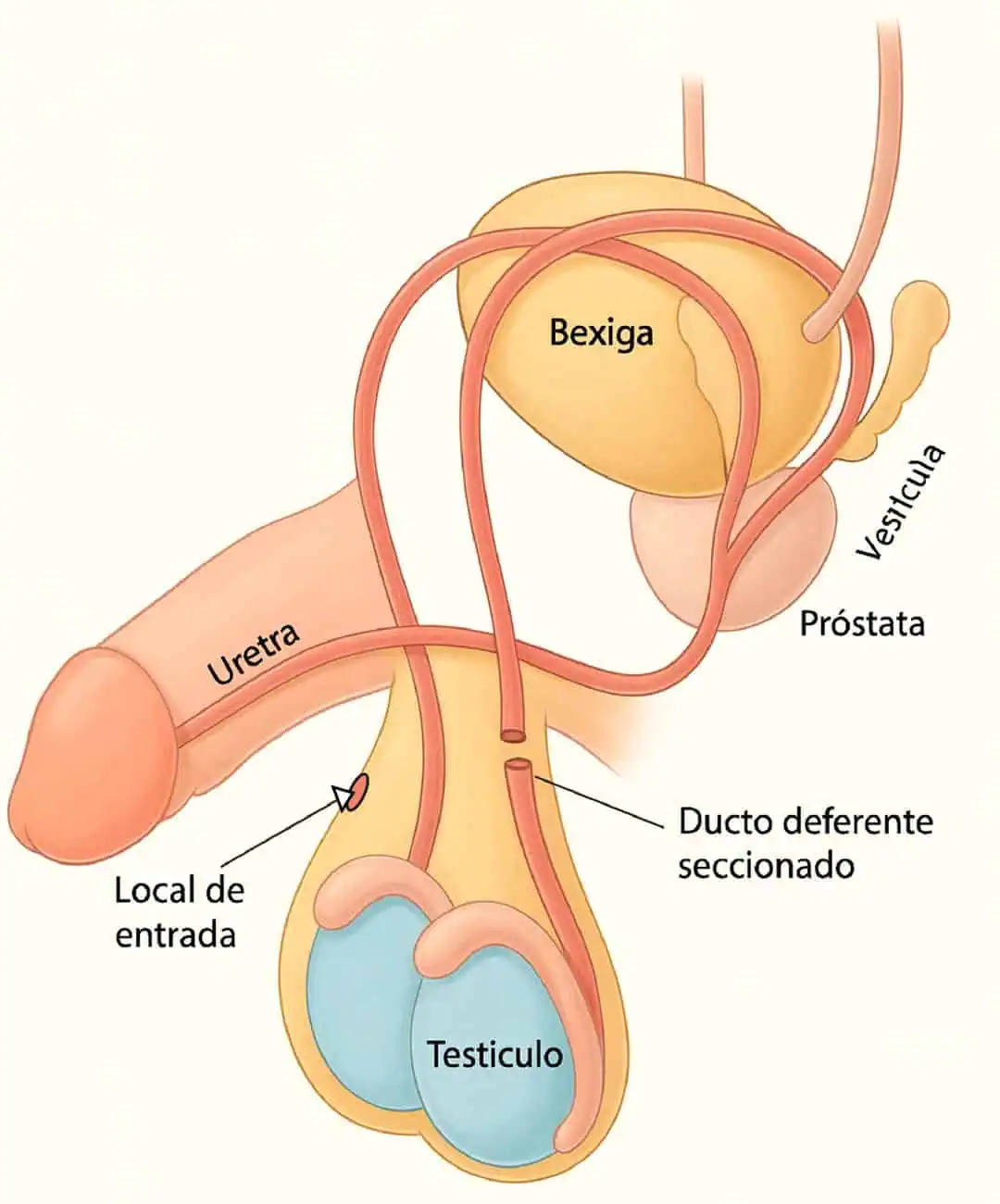Vasectomy Without Cuts
Currently, the recommended technique (used by Dr. Alexandre Miranda) is the non-scalpel vasectomy, as it has the following characteristics less chance of bleeding, pain during surgery, scrotal pain, infection and bruisingcompared to the traditional technique (with two small cuts). In addition, there is a faster recovery for returning to daily and sexual activities2.
- Sharlip ID, Belker AM, Honig S, et al. Vasectomy: AUA guideline. The Journal of urology. 2012;188:2482-2491.
- Cook LA, Pun A, Gallo MF, Lopez LM, Van Vliet HA. Scalpel versus no-scalpel incision for vasectomy. The Cochrane database of systematic reviews. 2014;3:CD004112.

Advantages
Less pain
10x fewer complications
No points required
Faster recovery
Frequently Asked Questions
How will the vasectomy affect me?
- Cook LA, Pun A, Gallo MF, Lopez LM, Van Vliet HA. Scalpel versus no-scalpel incision for vasectomy. The Cochrane database of systematic reviews. 2014;3:CD004112.
Can I stop other contraceptive methods after the vasectomy?
Is vasectomy a painful procedure?
Does vasectomy have any long-term risks?
Can vasectomy be reversed?
Safe and effective birth control
Vasectomy is one of the safest and most effective definitive methods of birth control. It is safer and more effective than ligation performed by women.
The no-cut vasectomy technique is different from the traditional one: it doesn't require the use of a scalpel. The surgeon uses specific instruments to make a small hole through which the vas deferens (the tubes through which sperm pass) are cut, ligated and cauterized. The hole is so small that no stitches are needed to close it.
Book your appointment now
Click below
